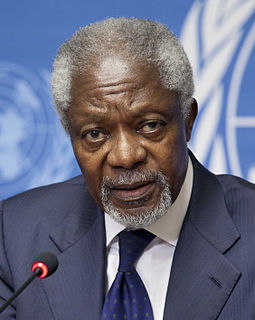
The Republic of Cyprus is a unitary presidential representative republic, whereby the President of Cyprus is both head of state and head of government. Executive power is exercised by the government. Legislative power is vested in both the government and the parliament. The Judiciary is independent of the executive and the legislature.

The Cyprus dispute, also known as the Cyprus conflict, Cyprus issue, or Cyprus problem, is an ongoing dispute between Greek Cypriots and Turkish Cypriots in the aftermath of the 1974 Turkish military invasion and occupation of the northern third of Cyprus. Although the Republic of Cyprus is recognized as the sole legitimate state – sovereign over all the island – the north is under the de facto administration of the self-declared Turkish Republic of Northern Cyprus, which is guarded by Turkish Armed Forces. Only Turkey recognizes the Turkish Republic of Northern Cyprus, while there is broad recognition that the ongoing military presence constitutes occupation of territories that belong to the Republic of Cyprus. According to the European Court of Human Rights, the Turkish Republic of Northern Cyprus should be considered a puppet state under effective Turkish control.

The Democratic Party is a Greek-Cypriot nationalist, centrist political party in Cyprus founded in 1976 by Spyros Kyprianou.

Glafcos Ioannou Clerides was a Greek Cypriot politician and barrister who served as the fourth President of Cyprus from 1993 to 2003. At the time of his death, he was the oldest living former President of Cyprus.

In order to find a solution to the Cyprus dispute, which started in 1963, numerous plans and meetings in international arena were organized and eventually United Nations determined the solution to be "bi-zonal and bi-communal federation" based on the political equality of Greek Cypriot and Turkish Cypriot people. According to United Nations' 2004 Annan Plan for the reunification of Cyprus, the proposed United Cyprus Republic would consist of two constituent states, the Greek Cypriot State and Turkish Cypriot State, which would be governed by Greek Cypriots and Turkish Cypriots respectively.

Turkey is negotiating its accession to the European Union (EU) as a member state, following its application accede to the European Economic Community, the predecessor of the EU, on 14 April 1987. After the ten founding members, Turkey was one of the first countries to become a member of the Council of Europe in 1949. The country was also an associate member of the Western European Union from 1992 to its end in 2011. Turkey signed a Customs Union agreement with the EU in 1995 and was officially recognised as a candidate for full membership on 12 December 1999, at the Helsinki summit of the European Council.

Elections in Cyprus gives information on election and election results in Cyprus.
New Horizons was a radical right-wing populist political party in Cyprus founded in 1996. It aimed for a unitary state of Cyprus and rejected a federation of the Greek Cypriot and the Turkish part. In the legislative elections of 27 May 2001, the party won 3.0% of the popular vote and 1 of 56 seats. In 2005, it merged with Evropaiki Dimokratia to form Evropaiko Komma.

The Turkish invasion of Cyprus, code-named by Turkey as Operation Attila, was a Turkish military invasion of the island country of Cyprus. It was launched on 20 July 1974, following the Cypriot coup d'état on 15 July 1974.

Politics of Northern Cyprus takes place in a framework of a semi-presidential representative democratic republic, whereby the president is head of state and the prime minister is the head of government, and of a multi-party system. Executive power is exercised by the government. Legislative power is vested in both the government and the Assembly of the Republic. The judiciary is independent of the executive and the legislature.
Cypriot refugees are the Cypriot nationals or Cyprus residents who had their main residence in an area forcibly evacuated during the Cyprus conflict. The government of Cyprus also recognizes as refugees the descendants of the original refugees in the male line regardless of place of birth.

Presidential elections were held in Cyprus on 16 February 2003. The election was dominated by the ongoing negotiations over the Annan Plan for Cyprus. Incumbent President Glafkos Klerides was largely in favour of the plan, while leading opposition candidate Tassos Papadopoulos wanted substantial amendments before he would accept it. Papadopoulos won the election in the first round after winning over 51% of the vote. Voter turnout was 90.5%.

Turkish Cypriots and the European Union have somewhat strained relations because the European Union (EU) does not recognise the self-declared Turkish Republic of Northern Cyprus.

United Nations Security Council resolution 1475, adopted unanimously on 14 April 2003, after reaffirming all resolutions on the situation in Cyprus, particularly Resolution 1250 (1999), the Council regretted the failure to reach agreement on a settlement plan for the country, due to the "negative approach" of the Turkish Cypriot leadership.
A joint declaration was made on 11 February 2014 at the start of renewed negotiations to settle the Cyprus dispute. The following talks between Nicos Anastasiades, President of Cyprus, and Derviş Eroğlu, President of Northern Cyprus, were stalled in October 2014.
Turkish settlers in Northern Cyprus, also referred to as Turkish immigrants are a group of mainland Turkish people who have settled in Northern Cyprus since the Turkish invasion in 1974. It is estimated that these settlers and their descendants now make up about half the population of the North. The vast majority of the Turkish settlers were given houses and land that legally belong to Greek Cypriots by the internationally unrecognised, breakaway Northern Cypriot regime. The group is heterogeneous in nature and is composed of various sub-groups, with varying degrees of integration. Mainland Turks are generally considered to be more conservative than the highly secularized Turkish Cypriots, and tend to be more in favor of a two-state Cyprus. However, not all settlers support nationalist policies.






















